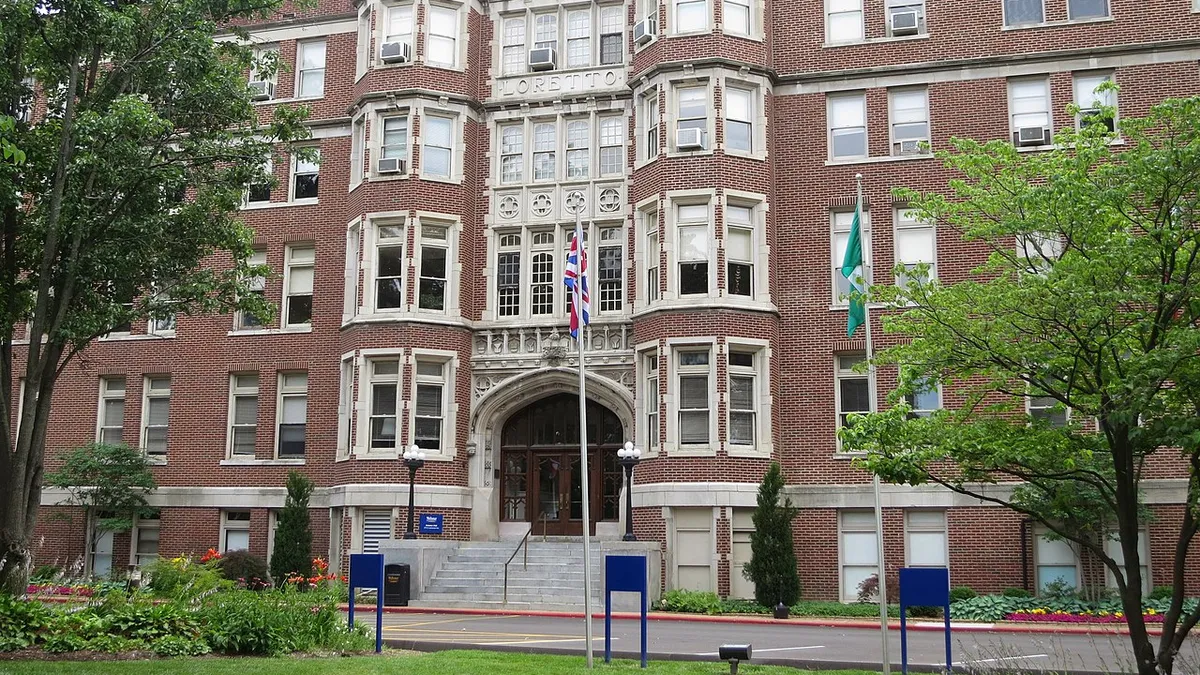Dive Brief:
- Webster University anticipates finishing its current fiscal year with positive cash flows, which would mark a first in the past decade, the private nonprofit said Friday.
- It ended the 2023-24 fiscal year with a $23.4 million total deficit, a roughly 40% decline from the prior year, an independent audit of the St. Louis-based university found.
- Touting a turnaround confirmed by the audit, Webster chalked the improvement up to “significant” enrollment increases over the past year and a half, as well as efforts to boost operational efficiency.
Dive Insight:
Webster’s previous audit came with a note that no organizational leader wants to see in a document — a “going concern” warning from the auditor. Auditors add these warnings when they find “substantial doubt” about an entity’s ability to continue operating over the next 12 months.
The audit cited “recurring operating deficits” and cash burn. For the fiscal year ending in May 2023, Webster’s negative cash flows had widened to $29.8 million from $20.3 million the year before. The university had also fallen out of compliance with a liquidity requirement in a loan agreement.
The latest audit, released Friday, contained no going concern warning and noted that Webster was fully in compliance with its line of credit as of May 2024.
Webster Chancellor Tim Keane, who began in August, referenced the going concern warning in the university’s previous audit to highlight the improvement it had made.
“It is extremely rare for any institution in today’s challenging higher ed environment to flip an audit from a ‘going concern’ opinion in one year to a clean outlook the very next year, but going from a $37 million loss to breakeven in two years is extraordinary,” Keane said in a Friday statement.
Enrollment growth helped bolster Webster's finances. Between fall 2021 and 2023, its headcount rose 12.2% to 7,606 students — though that’s still substantially lower than the 9,860 students who attended in fall 2019, before the pandemic.
Those improvements, in turn, brought substantial revenue increases. Net tuition and fee revenue rose nearly 30% year over year to $118.1 million in fiscal 2024, according to the latest audit. Total revenue rose by nearly $29 million from the prior year.
Amid the financial strain in recent years, Webster has also taken several steps to try to cut costs and stem the bleeding.
Most recently it announced it would close its nine remaining campuses on military bases. A spokesperson said in November that most of the university's active military students were already taking classes online, making the impact of the campus closures minimal.
Webster also created a strategic enrollment plan to improve its recruitment, retention and financial aid operations and tailor itself to workforce, market and community needs. It also ramped up marketing efforts and added science, technology, engineering and math programs to attract students. On its balance sheet, it restructured several bonds and won more favorable terms from lenders, the university said.















